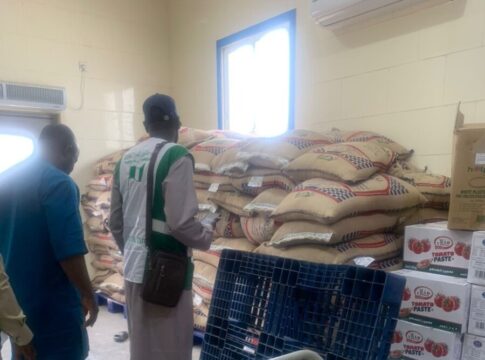MECCA, May 11 — In a major leap toward modernizing healthcare for Malaysian pilgrims, Lembaga Tabung Haji (TH) has introduced the use of digital tablets for medical assessments during the 2025 Haj season. This advancement is being rolled out as part of its Ziarah Rahmah programme, which involves regular wellness visits to pilgrims across all maktab (residential) locations in the Holy City.
Dr. Abdullah Husam A. Shukor, Operations Coordinator of TH’s Public Health Unit, explained that the tablets — deployed for the first time this Haj season — are equipped with SIM cards and internet connectivity, allowing medical staff to access real-time patient data during visits.
“Healthcare workers can now retrieve pilgrims’ health information directly from the Ministry of Health’s MyVAS system via our in-house SIHAT platform,” said Dr. Abdullah during a media briefing with Malaysian journalists in Mecca.
Previously, health records were updated manually in physical health booklets, a process prone to delays and human error. The digital approach now allows medical teams to efficiently track the health status of each pilgrim — categorizing them into green (healthy), yellow (at risk), or red (chronic conditions) for prioritized care and faster response.
“This digital transformation is a game-changer for our operations. It ensures early detection of health issues and enables our teams to act swiftly and with more precision,” added Dr. Abdullah.
In addition to medical checks, TH staff also provide vital health education during the visits. Pilgrims are reminded to stay hydrated — consuming at least two litres of water per day — and are advised to avoid prolonged sun exposure, especially between noon and Asar. Usage of umbrellas, hats, and face masks is also encouraged, particularly in crowded locations like Masjid al-Haram.
READ MORE: Hajj 2025: Mecca Route Prioritizes Elderly Pilgrims with Streamlined Services
The Ziarah Rahmah programme is not limited to monitoring chronic conditions. It also helps detect previously unreported health concerns such as eye problems, dehydration symptoms, and minor wounds. Pilgrims who require medication refills or further treatment are directed to the nearest TH clinic. For instance, those staying at Abraj Al Janadriyah Hotel are referred to the clinic located on the building’s third floor.
With the integration of digital tools and enhanced workflows, Tabung Haji is setting a new benchmark for Haj healthcare, offering Malaysian pilgrims peace of mind and better access to timely medical support during their sacred journey.



